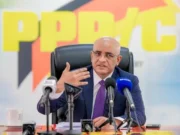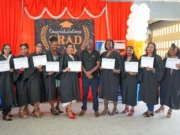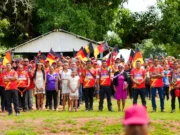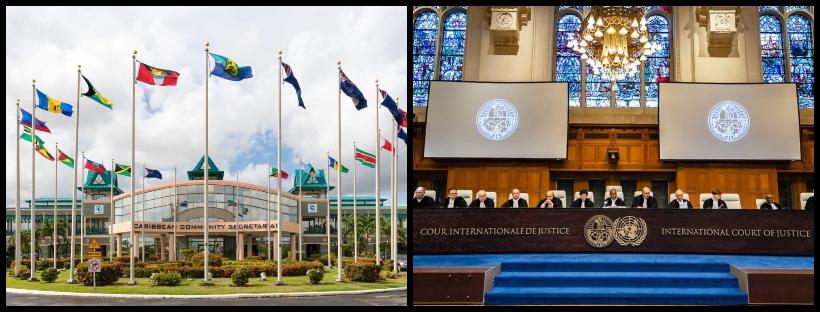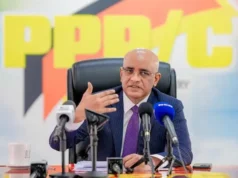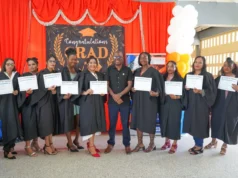When the 23rd Meeting of the Council for Foreign and Community Relations (COFCOR) of the Caribbean Community (CARICOM) was held virtually on May 7 and 8, 2020, Foreign Affairs Ministers across the region received an update on the most recent developments on the Guyana/ Venezuela border controversy case at the International Court of Justice (ICJ).
Guyana’s Minister of Foreign Affairs, Dr. Karen Cummings was among those in attendance.
At the meeting, Ministers reiterated CARICOM’s full support for the judicial process that is intended to bring a peaceful and definitive end to the long-standing controversy between the two countries.
The Ministers further reiterated their firm and unswerving support for the maintenance and preservation of the sovereignty and territorial integrity of Guyana.
Guyana was to have presented its case in oral pleadings scheduled for the week of 23 March ,2020, as to why the ICJ was properly vested with jurisdiction by the United Nations Secretary-General under the Geneva Agreement 1966 for a final resolution to the controversy between Guyana and Venezuela.
But due to the COVID-19 pandemic, the oral pleadings had to be postponed by the ICJ which has its seat in the Hague, Netherlands.
In the case, Guyana seeks to obtain from the court a final and binding judgment that the 1899 Arbitral Award, which established the location of the land boundary between then-British Guiana and Venezuela, remains valid and binding, and that the county of Essequibo belongs to Guyana and not Venezuela as being argued by the Spanish-speaking nation.
Guyana took its case to the ICJ following the decision by the Secretary-General of the United Nations in January 2018, that the controversy between Guyana and Venezuela should be decided there. In making his decision, the Secretary-General was exercising the power vested in him in the 1966 Geneva Agreement between Guyana, Venezuela and the United Kingdom to decide how the controversy should be settled.
Venezuela has claimed, in a letter to the court, that the Secretary-General exceeded his authority under the Geneva Agreement, and that the court, therefore, lacks jurisdiction to adjudicate Guyana’s lawsuit. On this basis, Venezuela has indicated that it will not participate in the proceedings. On November 19, 2018, Guyana submitted its Memorial to the court, refuting Venezuela’s arguments and demonstrating that the court has jurisdiction.
Under well-established judicial precedent, the court will proceed to decide if it has jurisdiction over Guyana’s claims, irrespective of whether Venezuela participates in the proceedings. If it decides that it has jurisdiction, it will proceed to rule on the merits of those claims and decide whether the validity of the 1899 Arbitral Award and the border between the two states should be confirmed.
Under the United Nations Charter and the court’s own rules, its final judgments, both on jurisdiction and the merits will be legally binding on Guyana and Venezuela, whether or not Venezuela participates in the proceedings.
Nevertheless, Guyana expresses hope that Venezuela will participate, to indicate respect for the court and the international Rule of Law, the peaceful settlement of disputes, and the promotion of friendly relations between both states.

